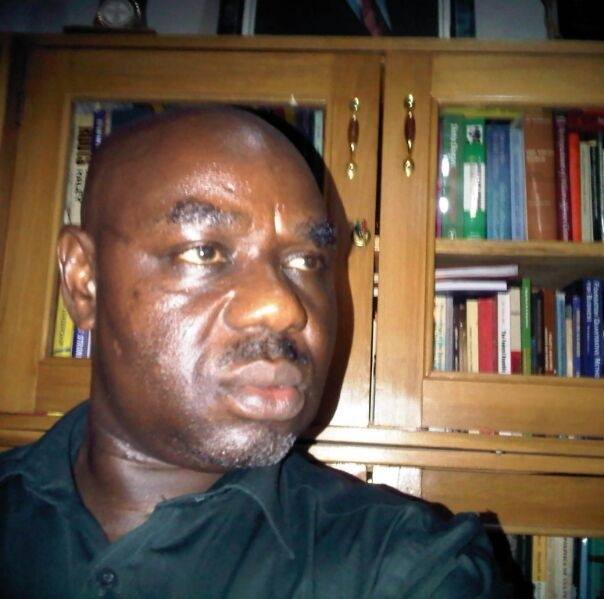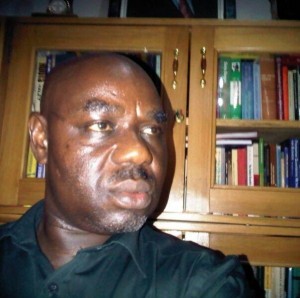


By Igbonekwu Ogazimorah
The Igbo Communities, though not limited in their indigenous habitations, to the South East of Nigeria, are the core areas of the last secessionist bid in the years, 1967 – 1970.
Of course, these Igbo, producing the best runners working for Nigeria independence, with such prime leaders as Dr. Nnamdi Azikiwe, US trained political philosopher and anthropologist, who later became Nigeria’s first President at Independence; Dr. Michael Okpara; Dr. Francis Akanu Ibiam; Dr. GC Mbanugo; Dr. Okechukwu Ikejiani; Dr. Kingsley Ozumba Mbadiwe; Dr. Nwafor Orizu, among others trained in Europe and America, never fought to oust the British in order to have a separate country othertha Nigeria.
The events of the early years of Independence merely forced secession on the people. Coming fresh from an ensuing pogrom, in which over 30,000 of men, women and children were murdered in cold blood in the North as other areas outside the old Eastern Region, where the Igbo were a majority migrant ethnic group, they were a people imperilled by circumstances of origin and exposure to resented westernised and modern African values.
Prior to that war which started in 1967 at the declaration of secession, the nomadic cattle rearers were never known to operate in any part of Igbo areas. They could not because there was certianly no need for them to so do.
Their incursion arose largely because the punitive war which revealed greater harshness of members of the Hausa and Fulani tribes in the North wiped out the original Igbo shortet-breed of cattle, known as efi Igbo. The conquering soldiers fed on them as they rampaged from one Igbo community to the other in the fast progessing conquest of Igbo land, 1967 – 1970. The natives, who already knew their fate in the hands of these Hausa-Fulani soldiers simply vanished into the bushes as the animal – killing/consuming spree lasted.
At the end of the war, there were no longer anything called Efi Igbo.
Assured of their new statuses as masters of Nigeria, the Fulani cattle herdsmen soon headed down south, which is mainly forest region, to graze their cattle. Just fresh from brutal defeat, the Igbo, were mere onlookers. These cattle, were initially rolled down over nine hundred kilometres on foot from Kano or Maidugiri, to graze in the dry season, while they headed back the desert North at the outset of the rainy season.
This continued until the 1980s, when perhaps the herdsmen or their masters decided it was cheaper and less hazardous to keep the cattle in the South East. Again, there was no problem until these herders now began to turn menaces to farms and crops, deliberately leading their cattle to destroy farms, eat crops, waste efforts of natives, with their cattle. Ever since then, there have been repeated skirmishes with the natives who, as subsistent farmers, were gradually losing out their farming lands to these herdsmen and their cattle.
To make matters worse, many of these herdsmen had come with the worst vices – as armed robberies, mass killing of natives in their farms or their sleep at night, and sacking of whole communities in the event of their usually well coordinated violent attacks.
Our rural population is made largely of these subsistence farmers who do not share in the loots and booties of the crude oil boom of which the Igbo, generally as a race, was excluded following their defeat in the 1967 -1970 Nigeria-Biafra war.
And if you take a little time to look at the geographical configuration of Nigeria, the South East – the core Igbo – has the least land mass. A mere average of 29, 000 square miles. This size is just about that of one of the smallest of a single state in the North or less than half of Bornu State which is reported to have over 76,000 square miles, in the North (the Lake Chad areas). And by Nigeria’s central revenue allocation formulae, land mass remains the ultimate decimal.
Safe the pogrom against the Igbo by Northern Nigeria soldiers in 1966 and the eventual brutal war, the Igbo are not used to such violence as such recently visited Ukpabi-Nimbo, a sleepy Igbo community in Enugu State (South East). This particular attack had was boldly spelt in harking to instant death by their night time Fulani attackers who did not mind cutting off the heads of babies, the aged and helpless mothers, most of whom were sleeping in their quiet homes, in their quiet village, last April…..
Now, waving a mantra of Federal Land Use Act, which did not even give powers of land to the Federal Government, but to State Governors, the Herdsmen have declared that they were going to continue their maruading activities as they felt no law forbade them from traversing the country to graze their livestock, even to the detriment of native farmers whose farms, crops, women folk, etc, were destroyed, eaten or raped and murdered.
As far back as 1988, a woman in Okpatu, Udi local government area of old Anambra State (that part is now Enugu State), was harked to death by these herdsmen when she tried to stop them from raping her only daughter, only child. The tension was forcibly brought under control in favour of these herdsmen because then, the Military Governor, Brigadier-General Sule Ahman, was a Northern Hausaman.
In one of the statements made public by the police on the Ukpabi-Nimbo massacre, a Fulani herdsmen whose phone revealed the gory pictures of the Ukpabi-Nimbo acts, stated that before any attack on a community was carried out, the concerned or aggrieved Fulani would take kola nuts to various Fulani settlements across Nigeria, Camerouns, Chad and Niger to announce intention or desire “to teach a community some lessons they would not forget.”
In such gatherings, people, especially the youthful, were nominated by every Fulani settlement to join in the attack. They were usually informed of date of attack, point of assembly and eventual jump off to actions against the community.” (Agrieved Fulani means one prevented by native Igbo from destroying farmlands with his cattle.
By this arrangement, it is now clear that the Igbo areas, being about the richest in agricultural lands are mortally endangered, threatened with extinction and already labelled as points the herdsmen want to settle and occupy by force.
Although the region – the South East – produces the highest number of employable university graduates, they remain the areas of highest unemployment due to Federal government policies since the war. The youth are only being encouraged to go into farming and trading, not just to survive but also to find other means of self fulfillment. This is about being taken from them since their lands have now been roguishly declared grazing regions for Fulani and their cattle.
The attention of the world is therefore being called to see, once again this unrelenting design anf desire of the Hausa-Fulani to completely wipe the Igbo from the map of the earth.
The core Igbo, made of only five of the 36 states in Nigeria, though with a good presence of natives in Delta, Benue, Kogi, Rivers, Akwa Ibom and Cross Rivers States, with large migrant populations in Lagos, other areas of the South West, Kano and other areas of the North, are estimated to be over 54 million.
They are a people in dire need of help, to throw back the herdsmen to the North, where lands are far more in excess of size. Lands in the North, (everywhere is not even desert) promises producing of more savana grasses if only the government would be creative with encouraging the livestock farmers in development of ranches there in the North, so that South Easterners can once again sleep with their eyes closed.
Rhe challenge at the moment is that every Igbo, young and old must come to understand that the issues of herdsmen and their murderous acrivities in the region is not only causing a disturbing friction but the nearest to the pressures that led to reasons of the 1967 – 1970 war.
The world of today is ruled by higher and better technology. The swing of the pendulum is not even determined by such factors of super power alliances and population as obtained in then.
We must rise and say “NO”. Ndigbo must live! And happily as another hard working people! In Nigeria or elsewhere!
Lend your hand now!







